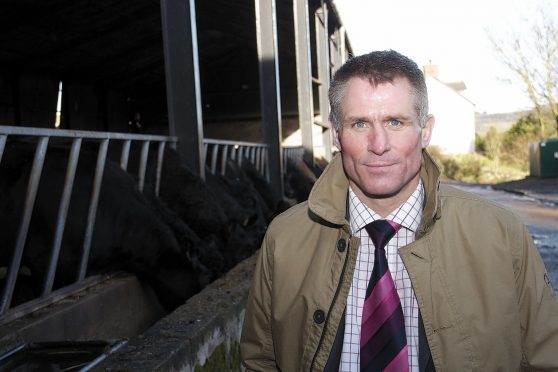NFU Scotland’s director of policy Jonnie Hall has been seconded to Scottish Government to help shape post-Brexit agricultural policy.
The temporary posting, which will see Mr Hall work alongside the government’s agricultural team for two days per week, has been hailed a big coup by the union.
Chief executive Scott Walker said having a man on the inside would help ensure the best possible deal was negotiated for farmers and crofters once the UK leaves Europe.
He said: “Jonnie will be working with the Scottish Government team so that the team actually properly understand what the needs of the industry are.”
Mr Hall, who has worked in academic and consultancy roles in agriculture for more than 30 years, said his role at Scottish Government would be to “largely sense-check” future policy decisions.
He said: “There are lots of interested parties out there and there are lots of views and opinions being pushed out.
“Really my role is to bring a sense of realism to decisions and I think I’m there largely to sense-check and make sure the policy is fit for purpose.”
NFU Scotland (NFUS) president, Allan Bowie, hailed Mr Hall’s secondment and said it would benefit the whole industry.
He said: “If we are to secure the very best deal for Scotland, it is crucial that those involved in negotiations are of the highest calibre.
“Scottish agriculture needs people at the heart of Brexit talks who have a real depth of experience and knowledge. It is in the best interests of the whole Scottish agricultural sector that Jonnie Hall forms part of the team looking at securing the best outcome for farming from Brexit and setting future agricultural policy.”
Mr Bowie said the union would also continue its work engaging with as many politicians as possible to explain the needs of Scottish agriculture in Brexit negotiations.
He said the focus of the union in the months ahead would be getting involved with discussions on future agricultural policy, lobbying politicians about the importance of access to non-UK staff, and ensuring future trading arrangements with Europe and the rest of the world were best suited for farming.
